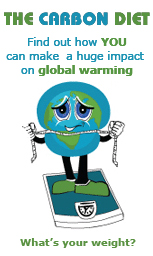Ask Ronit
 I Like Your Ponytail, A Story About Commitment
I Like Your Ponytail, A Story About Commitment
“I like your ponytail.” I said in a playful manner. “Ponytail?” he repeated in a thick French accent. There and then began the most extraordinary odyssey of my life.…
Avoid 90% of the Pesticides in Food, by Avoiding 12 Foods
Why should you care about pesticides in your food?For starters there may be as many as twenty pesticides on a single piece of fruit you eat.…
Dear Mrs. Black,It was January 1967 when this 11 year-old, frightened, little Israeli girl walked into your classroom for the first time. I had only arrived in the country two weeks before.…
With sex all around us, oozing out of our televisions, theaters, magazines, fashion, on the streets, one would think we are the most sexually informed, open and comfortable nation on the planet.”…
I’m sure by now you all have noticed the ongoing meltdown in the mortgage industry. The cause of this whole mess is a little bit complicated, rooted in both the structure of the mortgage industry, and human nature. I’ll try to explain both factors here in layman’s terms.…
Breaking old habits; Creating new Ones
We are mostly habitual beings. Webster defines habit as an acquired mode of behavior that has become nearly or completely involuntary.…
Navigation
News And Events
Children aren't reckless when parents aren't around
A recent study follow 10 - 12 year olds and found that, while they expose themselves to risk as many parents may fear, children take a very active role in managing their exposure to risk in regards to their own actions and by setting rules and limitations in regards to activities with other children.
The University of Warwick and the Research Unit for General Practice in Copenhagen conducted a study that observed children for 8 months in their school, after-school, and in their neighborhood when in the absence of parents. read more »
A Camera to Help Dementia Patients
A small digital camera developed by Microsoft can help people with dementia dramatically improve their memory. The camera takes wide-range, low resolution photographs that can be made into a movie. Viewing the movie by dementia patients can jog their memories. However, besides jogging their memories it can also lead to long-term retention of memories. It is believed that it can increase the memory of a patient from 2% to as high as 80%. This camera may also help people with mild Alzheimer's disease by allow them to remember their recent past. read more »
China’s Turtles, Emblems of a Crisis
By NY Times
The saga of the last two Yangtze softs-hell turtles is symbolic of the threatening state of the wild life in China. The two remaining soft-shell turtles, respectfully 80 years old (female) and 100 years old (male) are our last hope for this specie.
Surveys of China's rich plant and animal life reveals a shocking and gloomy picture. Close to 40% of all mammal species, 70% of all nonflowering, and 86% of all flowering species are considered threatened. How has this come about and can it be rectified? read more »
Human Evolution May Be Speeding Up
Not only is the development of human technology speeding up but according to a new study human evolution may be speeding up as well.
Henry C. Harpending, an anthropologist at the University of Utah along colleagues compared the DNA of chimpanzees (our closest relative) and humans. They noted that the current rate of change does not match the number of differences concluding that our evolution must have been much slower than it is now. read more »
India Finds Mutated DNA Where Water Is Toxic
By NY Times
Toxic chemicals from fertilizers and pesticides are seeping into the groundwater in Punjab, India's grain belt, and may be causing genetic mutations in the population. Higher rates of Cancer and other abnormalities, including premature aging in children living in the surrounding area are being observed. A two year study commissioned by the Punjab Pollution Control Board found mutated DNA in the blood samples of 65% of the people tested.
Divers Who Jump in to Take the Mystery Out of City Waterways
By NY Times
Having frequently pedaled his bike over the Gowanus Canal's bridges in Brooklyn, Ludger Batan was familar with it's sticky green tint,oil-slicked surface and rotten-egg smell. Then, one day eight years ago, he looked into the canal and saw a school of striped bass chasing minnows. Soon he was putting his diving gear and jumping in. He wanted to demystify urban waters like the Gowanus to change from environments that are ignored to those that are protected and loved.
Marine reserves help alleviate poverty
I was first introduced to this concept in a story about an island community whose economy relied almost entirely on the capture and export of seahorses for use in novelty items in foreign markets. Over fishing have resulted in increasingly diminishing catches and increasing levels of poverty and desperation. However, once they set aside a reserve for the seahorses, an area they determined to be an ideal breeding ground, from which the community agreed never to fish, the seahorse populations steadily rose. read more »
Smile hunting makes us happy
By reli4nt
Who says playing games at work is unproductive?
Mark Baldwin at McGill University of Montreal had employees at a call center play a game for 5 minutes before work. The game simply required them to find a smiling face among the images of frowning faces. Those who played had a 17% reduction in the stress hormone cortisol compared to those who did not play. read more »
The Power of Green
The term "Green" came from people opposed to environmental rights. Well let's rename “green” to geostrategic, geoeconomic, capitalistic and patriotic. Living, working, designing, manufacturing and projecting America in a green way can be the basis of a new unifying political movement for the 21st century. "We don’t just need a black president, we need a green president. We don’t just need the first woman president. We need the first environmental president willing to end our addiction to oil — and to offer a real plan to reduce our dependence on fossil fuels." read more »
Global warming 'unequivocal,' U.N. says
U.N. Secretary-General Ban Ki-moon urges United States and China, the two largest polluters, to do more to decrease their impact on global warming. He said, "Only urgent, global action will do."
According to the U.N. panel of scientists, whose latest report is a
synthesis of three previous ones, enough carbon dioxide already has built up to imperil islands, coastlines and one-fifth to two-thirds of the world's species. read more »
Did You Know?
Regardless on your interpretation of the facts presented, this brief video presents an uncommon view of the current state and direction of our world. From technology to education, from employment to global economic trends the statistics are worth at least an 8 minute pause.
The video is a June 2007 update to the original "Shift Happens" video from Karl Fisch and Scott McLeod. read more »
Just ask the EPA
Ever have questions about environmental or health issues? Ever wish you could speak with a top environmental official? Believe it or not, now you can. Earlier this month the EPA launched an online forum named Ask EPA. The forum is a series of live chat sessions to which you can submit questions up to two days in advance or even during the live chat.
You can submit questions or sign up for alerts on upcomging speakers and topics at the Ask EPA website
Far out - Slovenia's hippie president
President Janez Drnovsek, frequently dressed in Indian clothes and sometimes playing the flute with laurel leaves in his hair, has cast off the trappings of power. After he was diagnosed with kidney cancer, Drnovsek, 56, left his presidential palace in Ljubljana, sacked most of his staff and moved with his dog to a mountain cabin near the village of Zaplana, where he grows organic food and bakes his own bread. read more »
Women directors earn more than men
In its annual director pay survey, The Corporate Library (a corporate governance and executive compensation research group), reported the median earnings for female corporate directors is $120,000. Meanwhile the median compensation for male directors was $104,375 or $15,625 less. read more »
Fuel Without the Fossil
By NY Times
For years, scientists have known that the building blocks in
plant matter, like corn kernels, stalks, straw and wood chips, contain an immense potential resource that could, in theory, help fill the gasoline tanks in America's cars and trucks. Most have focused on biology as a way to do it. But now, a new group of entrepreneurs, including Mr. Mandich, favor chemistry. They believe that techniques borrowed from oil refining and other chemical industries will allow them to crack open big biological molecules, transforming them into ethanol or even diesel and gasoline. read more »
Corn Plastic to the Rescue
Corn based biodegradable plastic offer hope for a cleaner future. The resin, known as polylactic acid (PLA), is formed into containers and packaging for food and consumer goods. While it may seem better than the conventional petroleum based packaging, there are some serious questions as to whether it is in the long term. read more »
Seagoing Climate Experiment Begins
By NY Times
A novel and contentious effort aims to commercialize the removal of heat trapping carbon dioxide from atmosphere using blooms of plankton. The Weatherbird II, a 115-foot private research vessel, entered international waters on Sunday to fertilize seas by adding iron. Some scientists believe that hundreds of millions of tons of carbon dioxide might be absorbed by fertilized seas. A lack of iron in some ocean waters prevents plankton from blooming. But some environmental groups oppose such efforts. read more »
Four out of five acknowledge need to sacrifice
By BBC News
The majority of people recently polled by the BBC stated that they believed sacrifices would be necessary to combat climate change.
The recent poll involved over 22,000 participants from Australia, Brazil, Canada, Chile, China, Egypt, France, Germany, Great Britain, India, Indonesia, Italy, Kenya, Mexico, Nigeria, the Philippines, Russia, South Korea, Spain, Turkey, and the United States.
The US and China, the two largest producers of carbon emissions also showed a recognition of the necessity for steps to be taken. read more »
Can you ID a person's racial/ethnic background?
I scored horribly on this test. I'd love to hear how you perform.
This quiz is a series of photos where you are asked to determine the persons race or ethnicity. As the author puts it:
Usually, mislabeling amounts to nothing more than an awkward experience for one or both individuals involved. But in some contexts, such as in the medical field - where exam results, dignoses, and treatment plans may depend on racial categories - the results of mislabeling can be much more signficant such as missed diagnoses, incorrect diagnoses and/or inappropriate treatment protocols.
read more »
First retail buildings in country earn energy star label
Four JCPenney stores have become the first retail buildings in the US to earn the Energy Star label. The four stores save JCPenney's almost $250,000 per year in energy costs, and avoid over 3 million pounds of carbon dioxide (CO2) per year. read more »

 My Hero
My Hero We Are Sexual Beings
We Are Sexual Beings The Banking Implosion
The Banking Implosion









